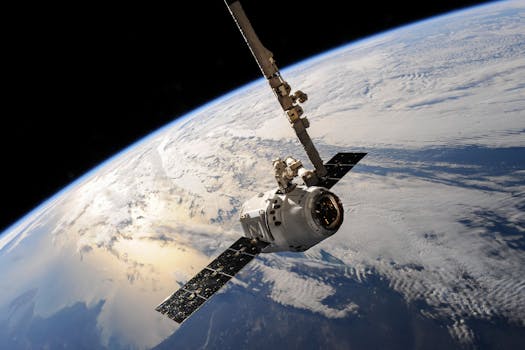The Future of Satellites: Revolutionizing Global Connectivity
The future of satellites is poised to revolutionize global connectivity, enabling faster and more reliable communication services. With advancements in space technology, satellites are becoming increasingly important for a wide range of applications, from navigation and communication to weather forecasting and Earth observation.

The Future of Satellites: Revolutionizing Global Connectivity
The future of satellites is poised to revolutionize global connectivity, enabling faster and more reliable communication services. With advancements in space technology, satellites are becoming increasingly important for a wide range of applications, from navigation and communication to weather forecasting and Earth observation. The future of satellites holds great promise, with new technologies and innovations emerging all the time.
One of the key trends shaping the future of satellites is the development of small satellite constellations. These constellations, composed of hundreds or thousands of small satellites, are designed to provide global coverage and enable a wide range of services, including communication, navigation, and Earth observation. Companies such as SpaceX, OneWeb, and Amazon are leading the charge in this area, with plans to launch thousands of small satellites into orbit in the coming years.
Advancements in Space Technology
Advancements in space technology are driving the development of new satellite systems and enabling the creation of more sophisticated and capable satellites. One of the key areas of advancement is in the field of propulsion systems, where new technologies such as electric propulsion and advanced ion engines are enabling satellites to operate more efficiently and effectively. Additionally, advancements in materials science and manufacturing are enabling the creation of lighter, more durable, and more efficient satellite components.
Another area of advancement is in the field of satellite communications, where new technologies such as phased arrays and digital signal processing are enabling the creation of more capable and flexible communication systems. These systems are capable of supporting a wide range of services, including broadband communication, navigation, and remote sensing. Furthermore, the development of quantum communication systems is expected to enable secure and reliable communication services, which will be essential for a wide range of applications, including financial transactions and sensitive government communications.
Applications of Satellites
Satellites have a wide range of applications, from navigation and communication to weather forecasting and Earth observation. One of the most significant applications of satellites is in the field of navigation, where satellite-based systems such as GPS and Glonass provide location information and timing signals to a wide range of users, including aircraft, ships, and vehicles. Additionally, satellites are used for communication purposes, providing broadband services to remote and underserved areas, as well as supporting critical infrastructure such as emergency response systems and financial networks.
Satellites are also used for weather forecasting and Earth observation, providing critical data and imagery to support decision-making in areas such as climate change, natural resource management, and disaster response. Furthermore, satellites are used for scientific research, enabling scientists to study the Earth’s atmosphere, oceans, and land surfaces in unprecedented detail. The use of satellites for these purposes is expected to continue to grow, driven by advancements in space technology and the increasing demand for satellite-based services.
Challenges and Opportunities
Despite the many opportunities presented by the future of satellites, there are also significant challenges that must be addressed. One of the key challenges is the issue of space debris, which poses a significant risk to operational satellites and other space-based systems. Additionally, the increasing demand for satellite-based services is driving the need for more spectrum and more orbital slots, which is creating tensions between different countries and organizations.
Another challenge is the issue of cybersecurity, which is becoming increasingly important as satellites are used for more critical applications. Satellites are vulnerable to cyber threats, which could have significant consequences for national security, economic stability, and public safety. Therefore, it is essential to develop and implement effective cybersecurity measures to protect satellite systems and ensure the reliability and integrity of satellite-based services.
In conclusion, the future of satellites is poised to revolutionize global connectivity, enabling faster and more reliable communication services. With advancements in space technology, satellites are becoming increasingly important for a wide range of applications, from navigation and communication to weather forecasting and Earth observation. While there are significant challenges that must be addressed, the opportunities presented by the future of satellites are substantial, and it is essential to continue to invest in space technology and satellite-based services to support economic growth, social development, and environmental sustainability.




